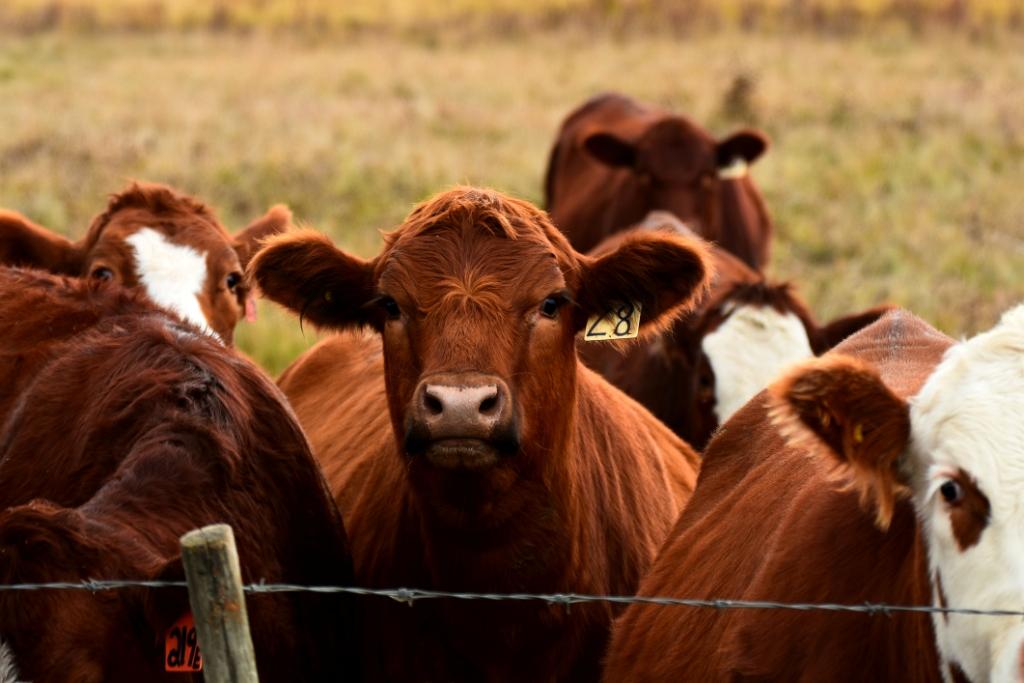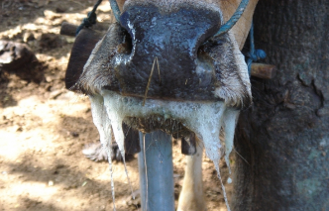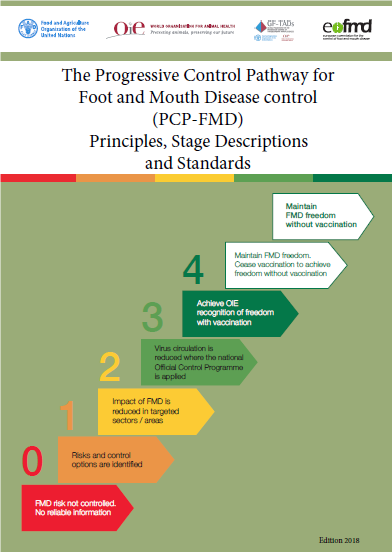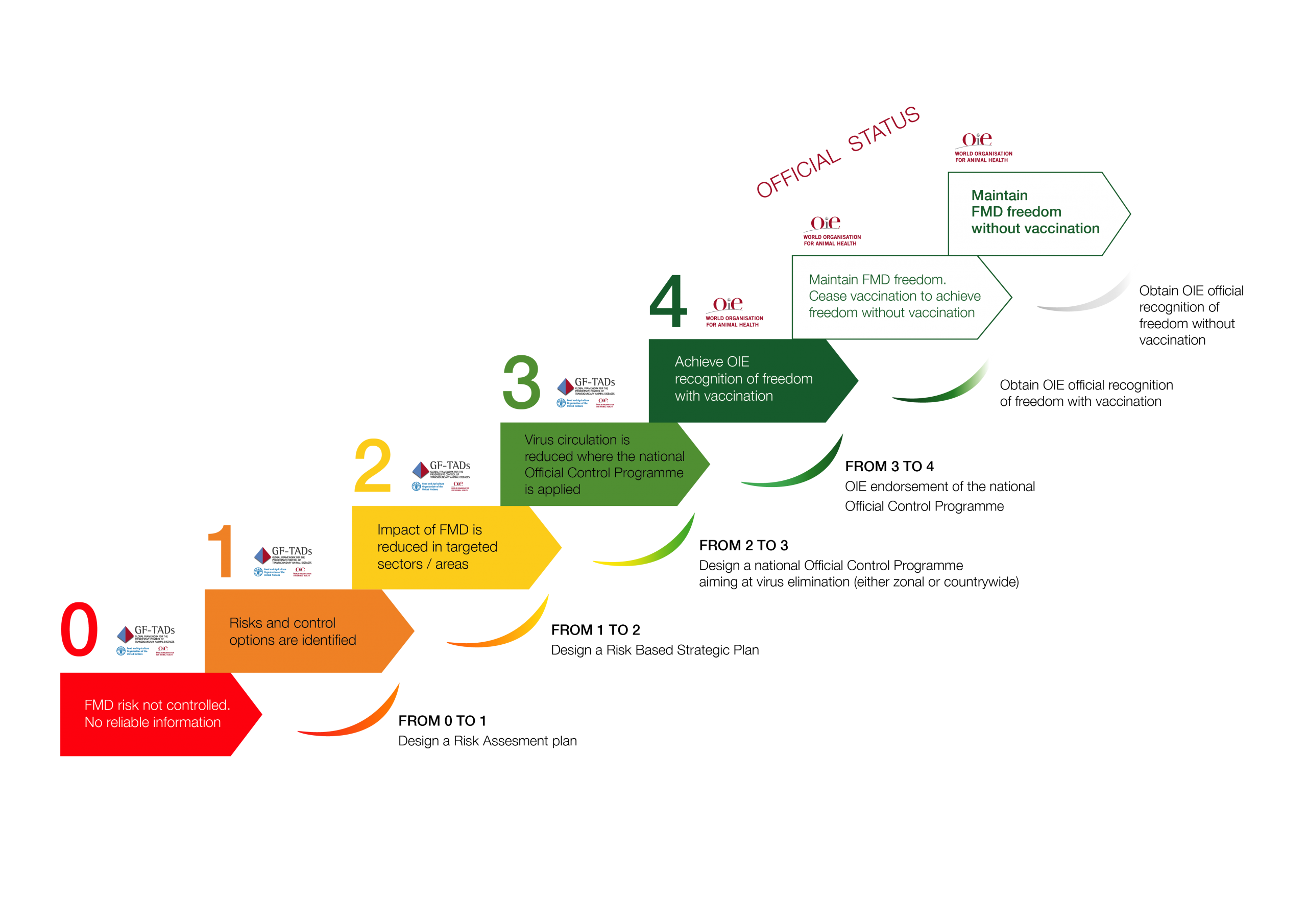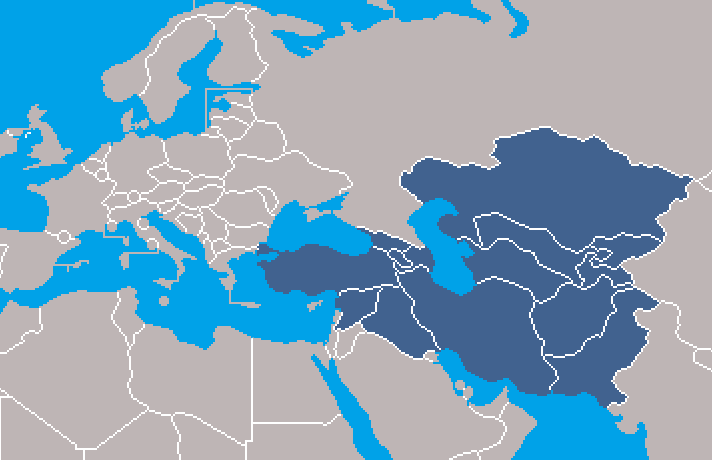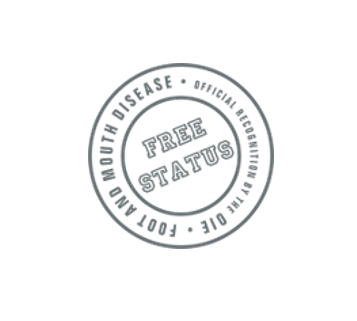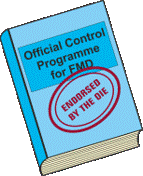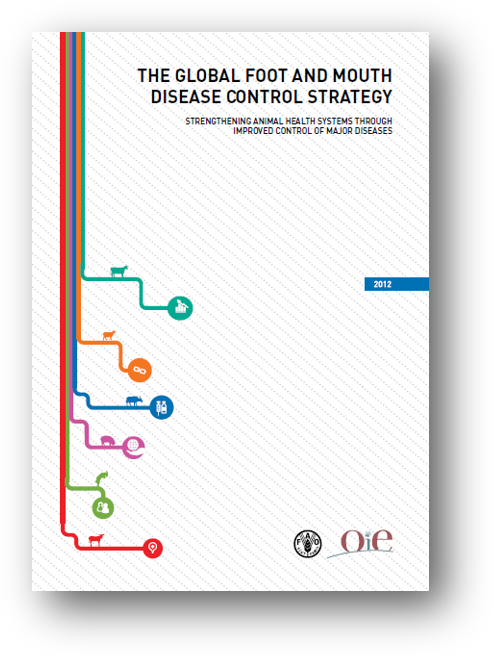
Foot and Mouth Disease (FMD) is an eminent transboundary animal disease (TAD), recognized as priority disease by the GF-TADs Steering Committee for Europe. It severely affects the production of livestock, disrupting regional and international trade in animals and animal products. The most significant impact of the disease in low and middle-income countries is losses in production, utility and income which together affect livelihood and impact food security and nutrition of farmers who rely on their animals for subsistence. African, Asian and Europe regions, are still affected with FMD.
Under the auspices of the Global Framework for the Progressive Control of Transboundary Animal Diseases (GF-TADs), WOAH and FAO have established a joint FMD working group that has developed a 15-year Global strategy for the control of FMD in consultation with regional organizations, scientists and field experts. This joint strategy was presented at the second FAO-WOAH Global FMD Conference held in Bangkok in 2012, with its three inter-related components:
(i) improving global FMD control,
(ii) strengthening Veterinary Services and
(iii) improving the prevention and control of other major diseases of livestock.
For an effective implementation of the global FMD strategy, the progressive control pathway for FMD (PCP-FMD) was introduced as guiding tool for the national control approach, in which standard control measures are applied in a step-wise and monitored manner (see the PCP-FMD guidelines, in English and in Russian). Around 80 countries in the world are currently engaged, at various levels, in the implementation of the PCP-FMD to reduce or eliminate FMD virus circulation by 2027.
Since the inception of the FMD Global Strategy, several initiatives have been taken to create an enabling environment to make FMD control a feasible option, particularly for countries most affected by the disease. To address some of the anticipated challenges, regional roadmap platforms have been successfully used to assess progress in FMD control. The FMD roadmap meetings are mainly aimed at:
(i) sharing information on FMD virus circulation in the region to assist planning of preventive measures in the short-term,
(ii) reviewing the outcomes of the ongoing FMD control activities,
(iii) assessing the progress of each country along the Regional Roadmap and
(iv) assisting them in preparing their national FMD control programmes.
In Europe, the FMD West Eurasian roadmap has been initiated in 2008. The representatives of Veterinary services of 14 countries (Afghanistan, Armenia, Azerbaijan, Georgia, Iran, Iraq, Kazakhstan, Kyrgyzstan, Pakistan, Syria, Tajikistan, Turkey, Turkmenistan and Uzbekistan) had their first FMD regional meeting in 2008, in Shiraz, Iran. All countries pledged on this Vision of a “Regional cooperation among Eurasian countries for the progressive control of FMD through public and private partnerships leading towards freedom of clinical disease by 2020 for economic development and poverty alleviation”.
Since then, FMD roadmap meetings have regularly been organised, the latest being in Shiraz for the 10th anniversary of the first meeting. The WOAH Sub-Regional Representation for Central Asia has been assigned as Secretariat of the roadmap since 2015. All the reports and recommendations of the FMD roadmap meetings for West Eurasia are available here.
FMD was the first disease for which we established an official list of free countries and zones. The first official list of WOAH Member countries recognised as free from FMD, without the use of vaccination, was published in May 1996.
The World Organisation for Animal Health has defined a transparent, science-based and impartial procedure for the recognition of FMD disease status of member countries. More than 90 Member countries do not have officially recognised FMD free status by the WOAH. FMD is still widespread throughout the world, particularly in Asia, Africa and the Middle East. In the era of globalization and global increase in traveling, trade and transportation of goods, FMD remains a permanent threat to all countries. Our experts stressed that the prevention of introduction of FMD for all countries, and particular for those free from FMD, is enhanced with severe import and cross-border animal movement controls and surveillance, early detection, warning systems and preventive measures.
The official recognition of disease status of Members is of great significance for international trade and constitutes one of the most important legal links between the World Organisation for Animal Health and World Trade Organization (WTO), in the framework of the WTO Agreement on the Application of Sanitary and Phytosanitary Measures (SPS Agreement), which entered into force in 1995.
Granting, suspension and recovery of official disease status are handled in an objective and transparent manner, governed by the Standard Operating Procedures (SOPs).
Read more about our official recognition of disease status.
The WOAH organises workshops on the procedure for the official recognition of countries status and the endorsement of official control programme. The main aim of these workshops was to strengthen the capacity of our Members to better compile a dossier for the official recognition of their disease status and for the endorsement of their national official control programmes, in accordance with our Terrestrial Animal Health Code (Terrestrial Code).
In 2019, we organised a workshop for 19 European countries to better understand the procedure to apply for an FMD free status and, for the countries already granted with this status, to regularly reconfirm their status. The details and outcomes of this workshop are available here.
In 2020, we renewed our proposal, with a workshop organized in Belgium for 35 Memeber Countries, to enable the staff from the Veterinary Services to improve their understanding of the WOAH standards and procedures related to maintenance of officially recognised disease status, and to strengthen the capacity in collection and preparation of the information needed to substantiate their dossiers in accordance with the requirements of the WOAH Terrestrial Code.
